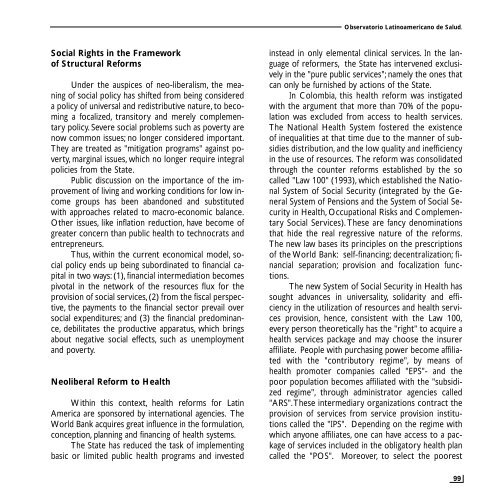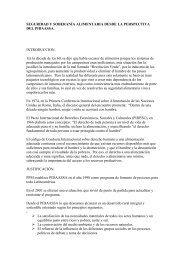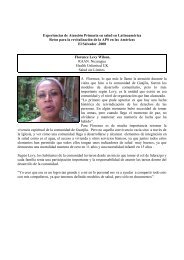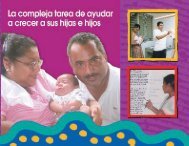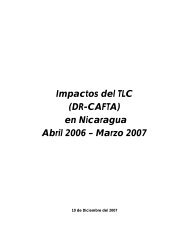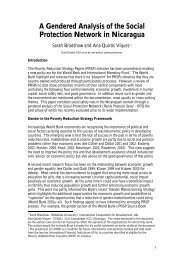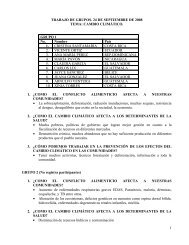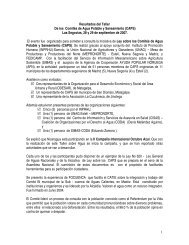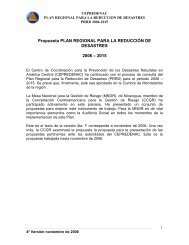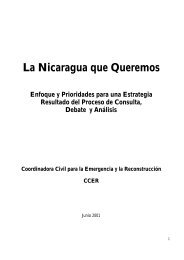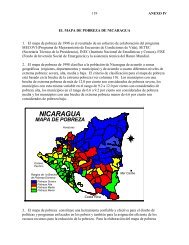Download - CISAS | Centro de Información y Servicios de AsesorÃa ...
Download - CISAS | Centro de Información y Servicios de AsesorÃa ...
Download - CISAS | Centro de Información y Servicios de AsesorÃa ...
Create successful ePaper yourself
Turn your PDF publications into a flip-book with our unique Google optimized e-Paper software.
Observatorio Latinoamericano <strong>de</strong> Salud.Social Rights in the Frameworkof Structural ReformsUn<strong>de</strong>r the auspices of neo-liberalism, the meaningof social policy has shifted from being consi<strong>de</strong>reda policy of universal and redistributive nature, to becominga focalized, transitory and merely complementarypolicy. Severe social problems such as poverty arenow common issues; no longer consi<strong>de</strong>red important.They are treated as "mitigation programs" against poverty,marginal issues, which no longer require integralpolicies from the State.Public discussion on the importance of the improvementof living and working conditions for low incomegroups has been abandoned and substitutedwith approaches related to macro-economic balance.Other issues, like inflation reduction, have become ofgreater concern than public health to technocrats an<strong>de</strong>ntrepreneurs.Thus, within the current economical mo<strong>de</strong>l, socialpolicy ends up being subordinated to financial capitalin two ways: (1), financial intermediation becomespivotal in the network of the resources flux for theprovision of social services, (2) from the fiscal perspective,the payments to the financial sector prevail oversocial expenditures; and (3) the financial predominance,<strong>de</strong>bilitates the productive apparatus, which bringsabout negative social effects, such as unemploymentand poverty.Neoliberal Reform to HealthWithin this context, health reforms for LatinAmerica are sponsored by international agencies. TheWorld Bank acquires great influence in the formulation,conception, planning and financing of health systems.The State has reduced the task of implementingbasic or limited public health programs and investedinstead in only elemental clinical services. In the languageof reformers, the State has intervened exclusivelyin the "pure public services"; namely the ones thatcan only be furnished by actions of the State.In Colombia, this health reform was instigatedwith the argument that more than 70% of the populationwas exclu<strong>de</strong>d from access to health services.The National Health System fostered the existenceof inequalities at that time due to the manner of subsidiesdistribution, and the low quality and inefficiencyin the use of resources. The reform was consolidatedthrough the counter reforms established by the socalled "Law 100" (1993), which established the NationalSystem of Social Security (integrated by the GeneralSystem of Pensions and the System of Social Securityin Health, Occupational Risks and ComplementarySocial Services). These are fancy <strong>de</strong>nominationsthat hi<strong>de</strong> the real regressive nature of the reforms.The new law bases its principles on the prescriptionsof the World Bank: self-financing; <strong>de</strong>centralization; financialseparation; provision and focalization functions.The new System of Social Security in Health hassought advances in universality, solidarity and efficiencyin the utilization of resources and health servicesprovision, hence, consistent with the Law 100,every person theoretically has the "right" to acquire ahealth services package and may choose the insureraffiliate. People with purchasing power become affiliatedwith the "contributory regime", by means ofhealth promoter companies called "EPS"- and thepoor population becomes affiliated with the "subsidizedregime", through administrator agencies called"ARS".These intermediary organizations contract theprovision of services from service provision institutionscalled the "IPS". Depending on the regime withwhich anyone affiliates, one can have access to a packageof services inclu<strong>de</strong>d in the obligatory health plancalled the "POS". Moreover, to select the poorest99


